Display videos
Yes, I'd like to see videos dispalyed.
Bayer 04 coach Dettmar Cramer had already announced his departure from Leverkusen two months before. His successor, Erich Ribbeck from the DFB, was already confirmed. So everybody who cared about the Black and Reds wanted to see a sensible and to the season.
FC Köln are third in the table. There is no room for improvement above and the lead over fifth place, a position securing qualification in the UEFA Cup, is three points.
Five goals before half-time
It is an entertaining game from the start. A wonder goal from Christian Schreier gives Bayer 04 the lead on 22 minutes but FC Köln level three minutes later through Pierre Littbarski. A mistake by the FC keeper Toni Schumacher, who lets a weak long-range effort from Dirk Schlegel into his net, and two goals for the Cologne team give FC Köln a 3-2 lead at half-time.
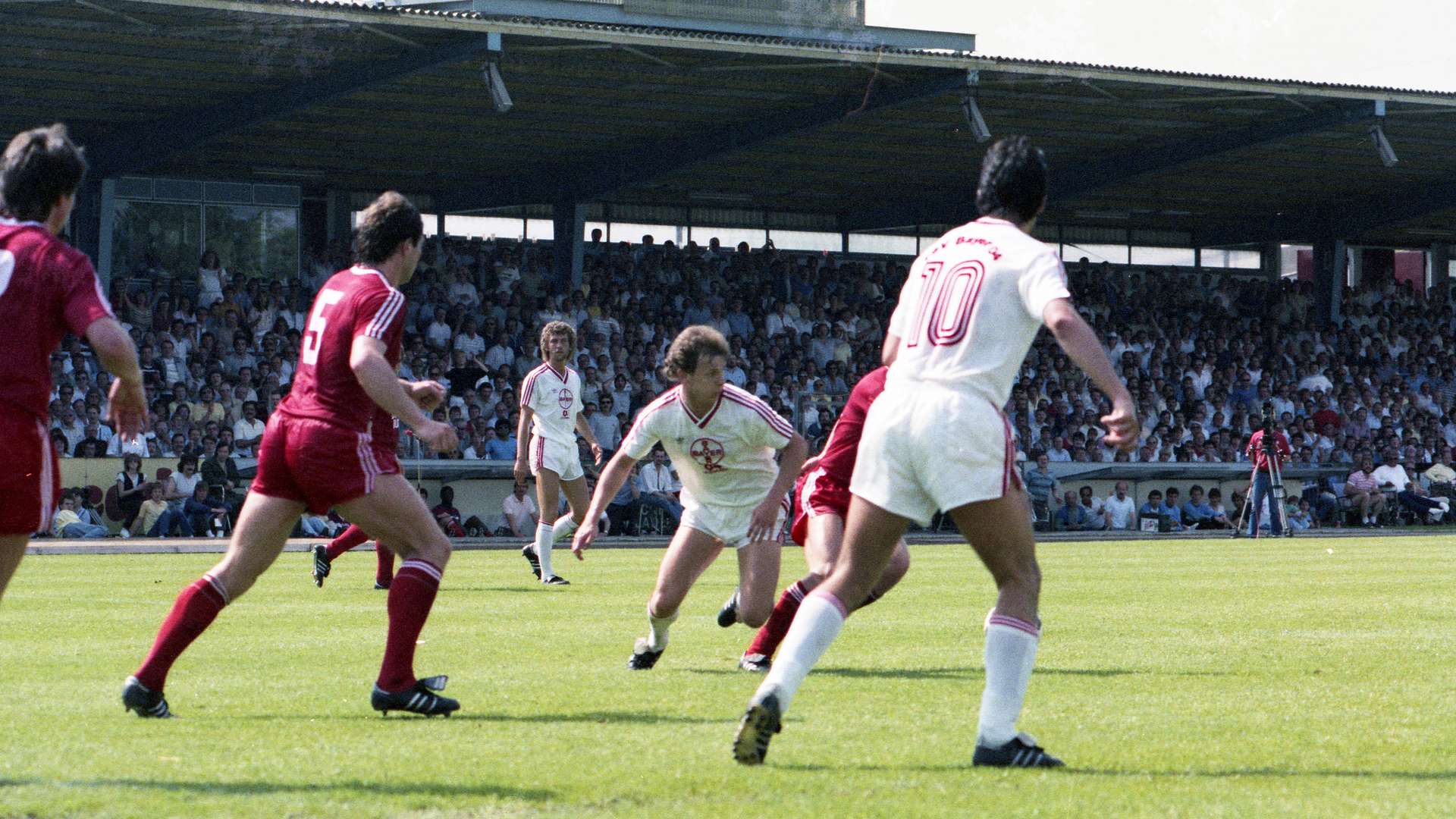

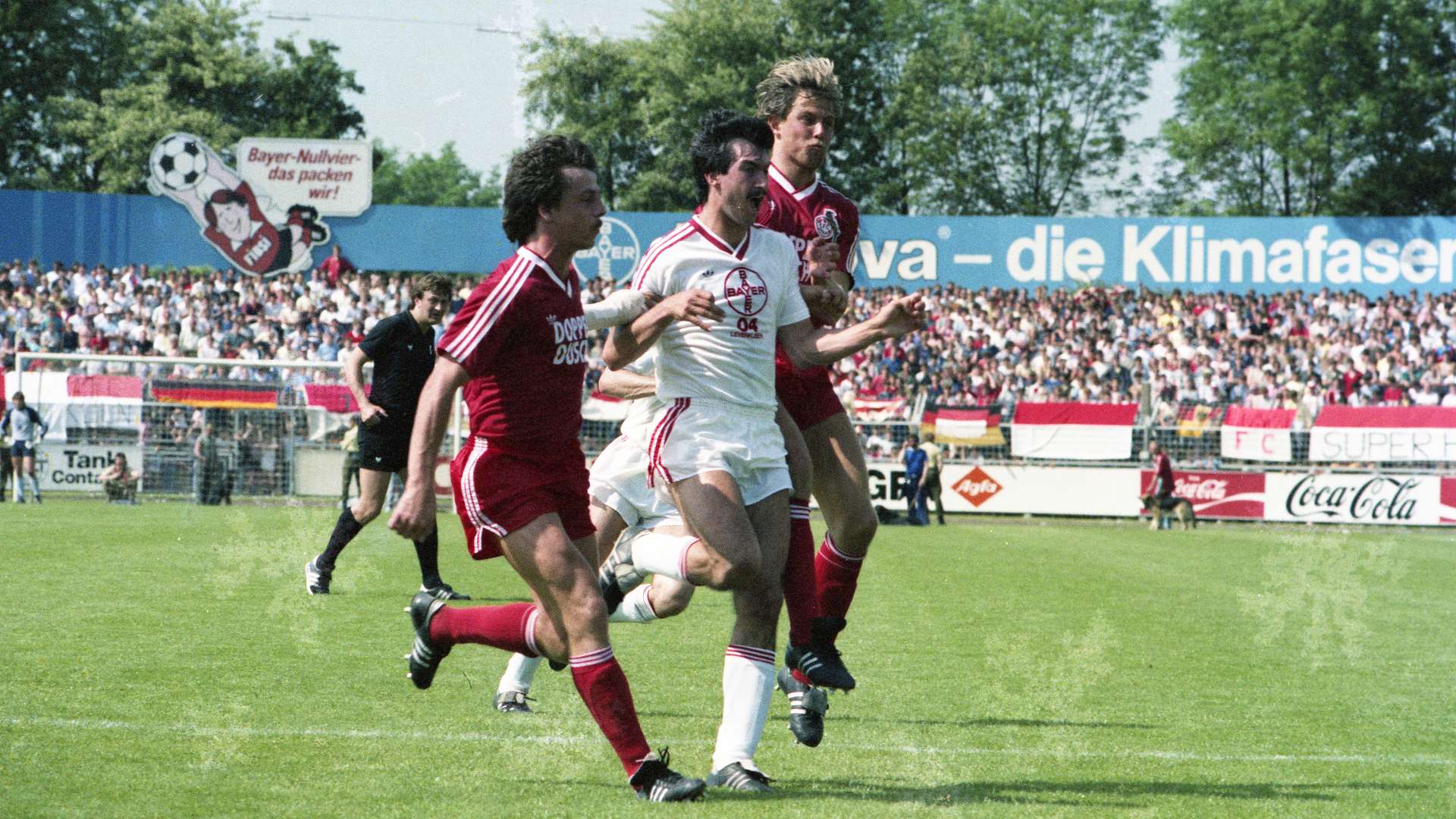
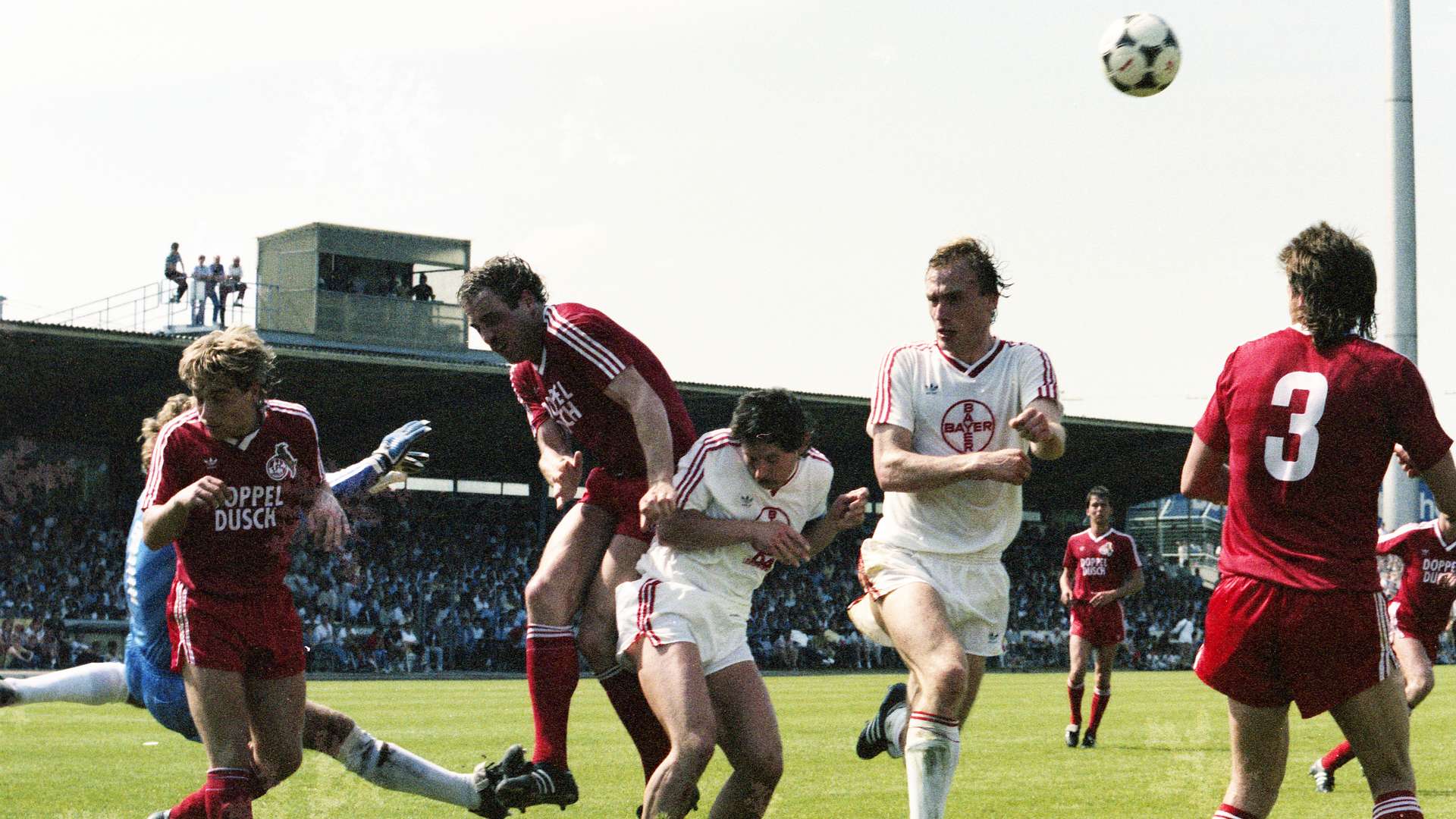
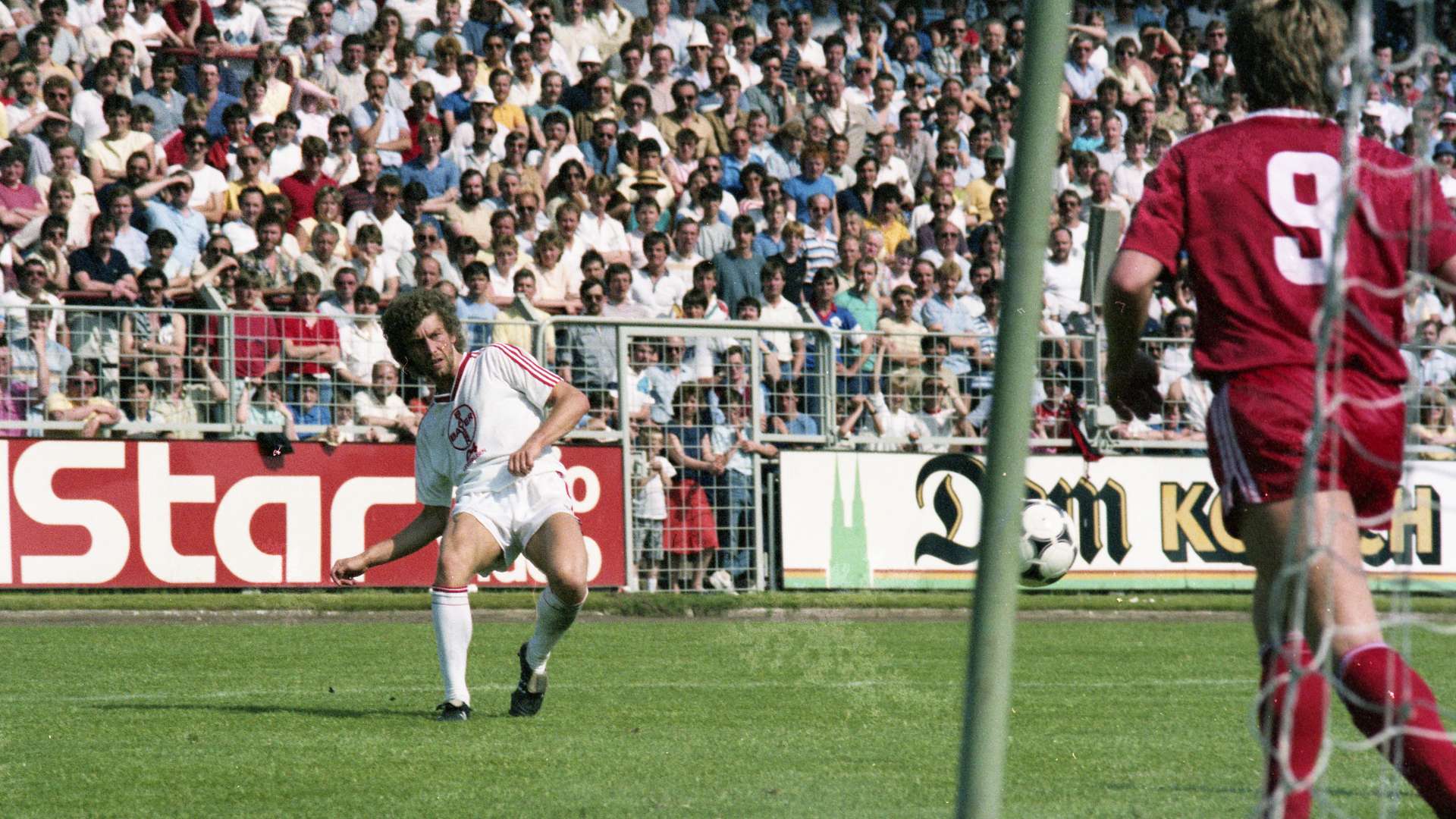
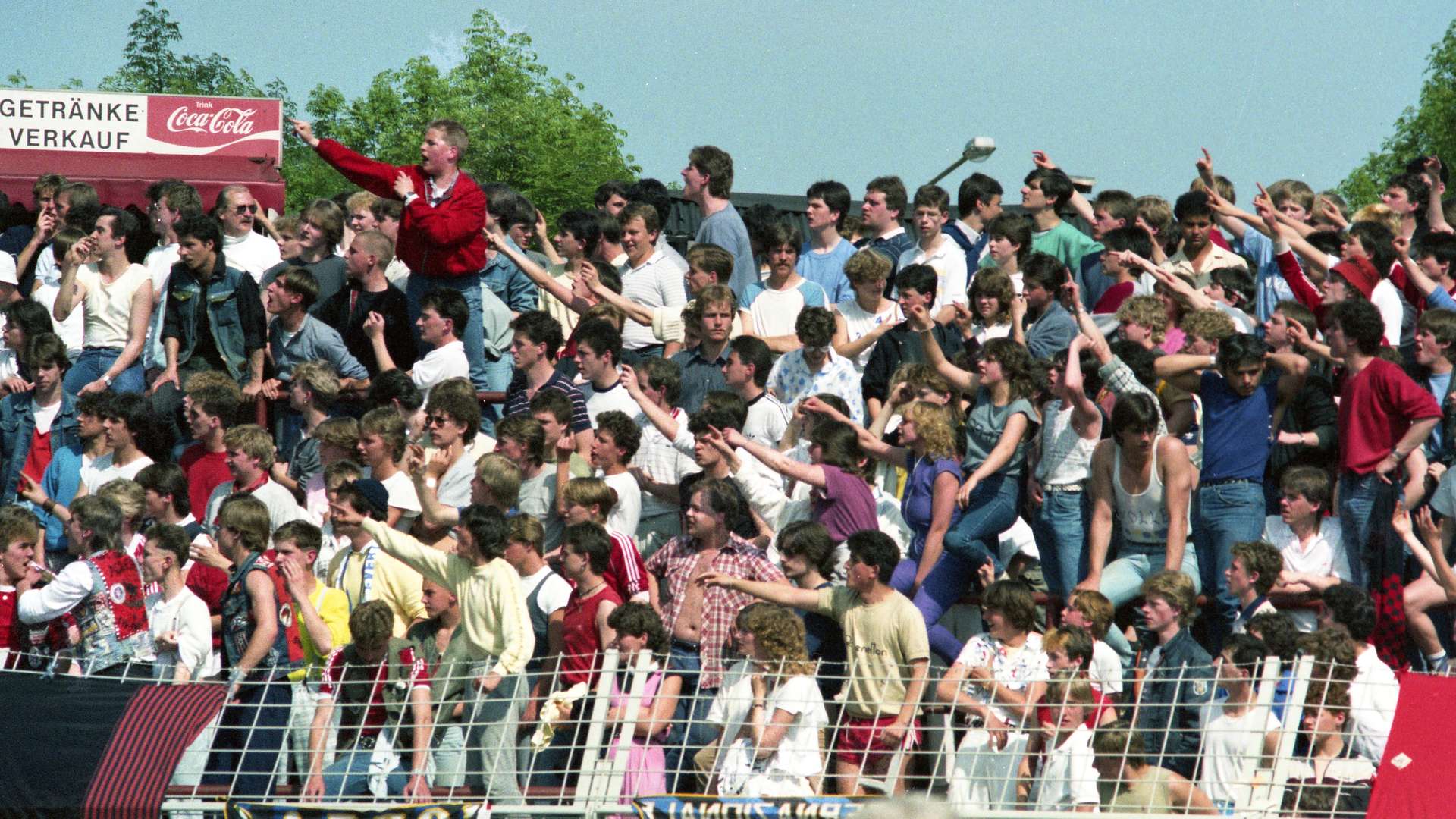
The Goats go 4-2 up after the restart from a corner and look like the certain winners. However, the visitors miss a number of chances. And the Werkself pull a goal back from the penalty spot through Herbert Waas. The same player equalises at 4-4 on 75 minutes.
The match is very entertaining and the scoreline remains the same to the end. The eight goals scored in this game make it the highest scoring derby in the Bundesliga.
The two line-ups for the nostalgic amongst us:
Bayer 04: Vollborn – A. Reinhardt, Bast, Gelsdorf, Hinterberger, Röber, Patzke (Pomp 46’), Schlegel (Geschlecht 81’), Giske, Waas, Schreier
FC Köln: Schumacher – Prestin, Lefkes, Hönerbach, Geils, Lehnhoff (Geilenkirchen 65’), Häßler (Haas 55’), Gielchen, Engels, Littbarski, Allofs
Related News

Legend: Christoph Daum - The man who taught us to want
Christoph Daum was born on 24 October 1953 in Zwickau. As a child, he moved to West Germany with his mother and grew up in Duisburg. He developed a great enthusiasm for football at an early age, even though it soon became clear that his future lay less on the pitch than on the sidelines. Even at a young age, his passion for analysing, explaining and improving things became apparent.
Show more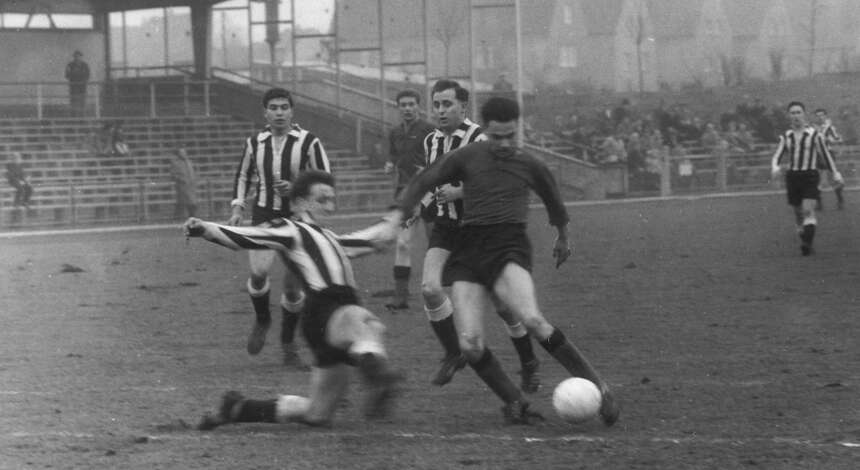
From the archives: 65 years ago - Another victory at last
When the Bayer 04 players celebrated Christmas in 1960, they spent the winter in second place in the Oberliga West 2 on 20 points - but already five points behind leaders Schwarz-Weiß Essen. However, coach Erich Garske's team are struggling to get back on track in the new year. A goalless draw against Bonner FV at home at the Ulrich Haberland Stadium was followed by a 2-1 away defeat in Erkenschwick. The following home game also yielded just one point. As a result, the team's promotion ambitions dwindled to a minimum, as the gap to the coveted spot has now grown to a challenging ten points.
Show more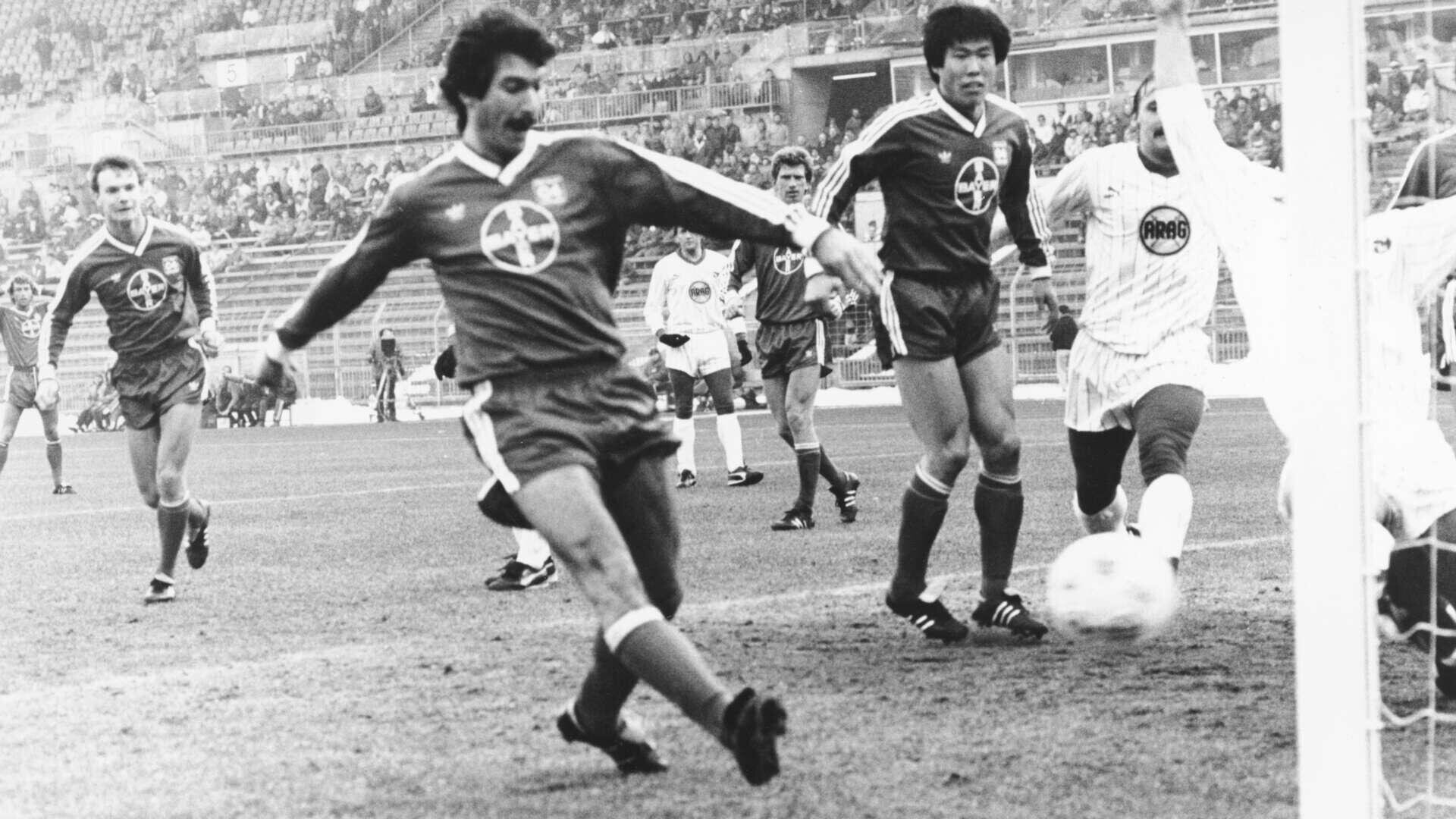
Goals of the month: From Waas to Tapsoba
In this video you can see impressive and important goals in Bayer 04 history from the month of February. It's not always about the beauty of the goals, but also a reminder of special games and players.
Show more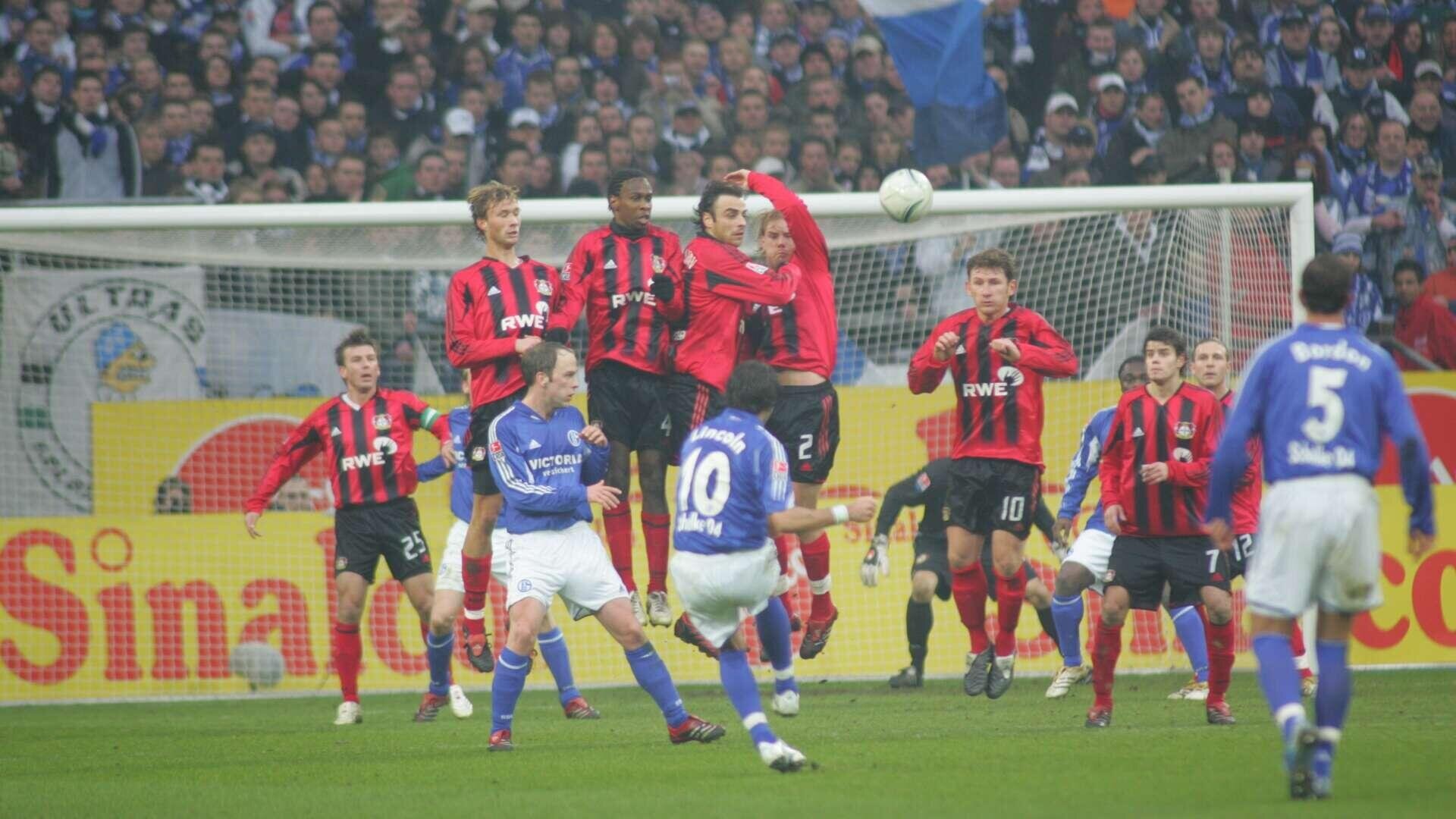
Match of the month: 20 years ago - A game of goals galore
It is 11 February 2006 and Schalke 04 and the Werkself kick off at 3.30 p.m. in a match that ends up being historic - at least from a Bayer 04 perspective.
Show more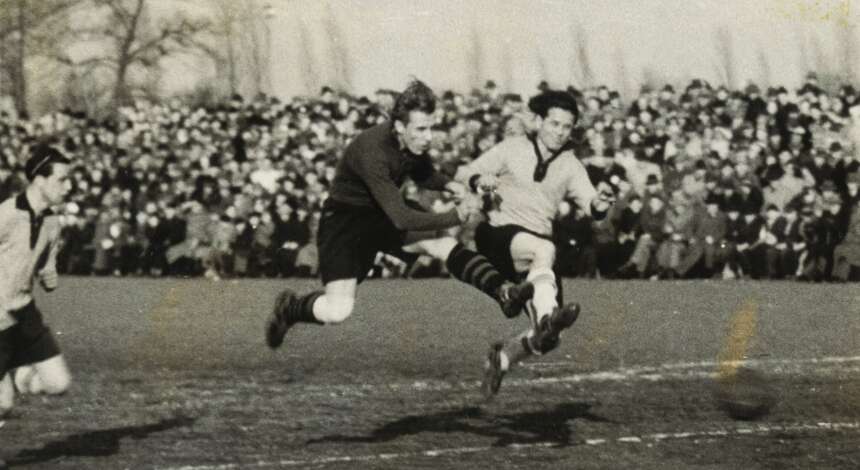
History: 75 years ago - The 1950/51 season (February)
As league leaders, the Werkself welcomed the relegation-threatened team from Rhenania Würselen. On 4 February 1951, 5,000 spectators line the touchlines despite the Sunday carnival parades. And they see a home team that is superior on the pitch. Without Theo Kirchberg, who was ill, and Emil Becks, who was suspended, the hosts attacked the opposing goal from the start. Battling against a strong wind in the first half, Bayer 04 created chance after chance, but were repeatedly thwarted by the Würselen goalkeeper. With the score at 0-0 at half-time, Karl Heinz Spikofski tried his luck on 55 minutes and hammered the ball into the opposition net from 20 metres out. Rhenania can no longer counterattack. The siege of the Würselen penalty area continued right to the end, but the game ended in a narrow 1-0 win.
Show more